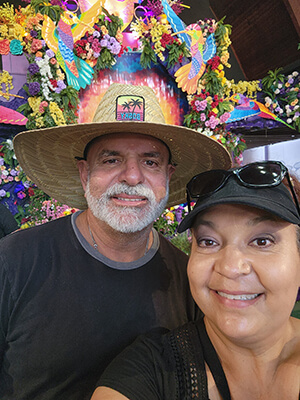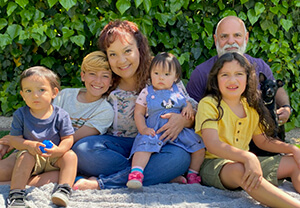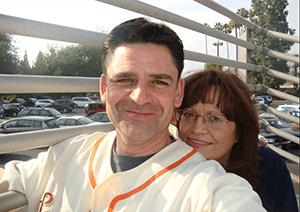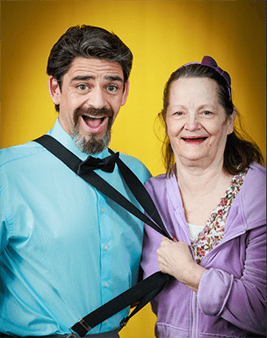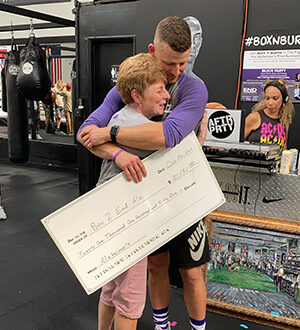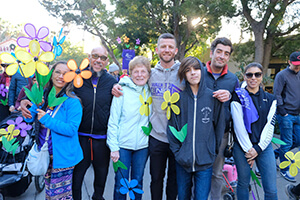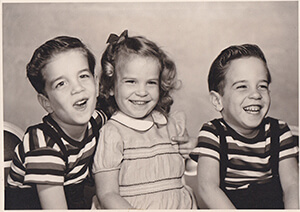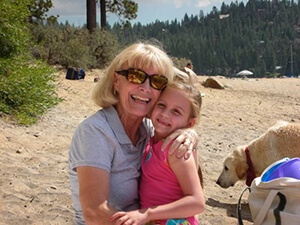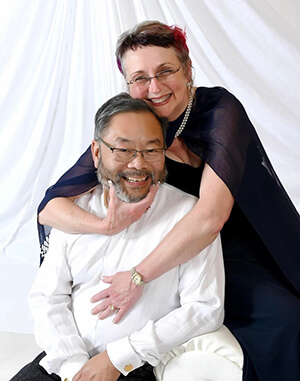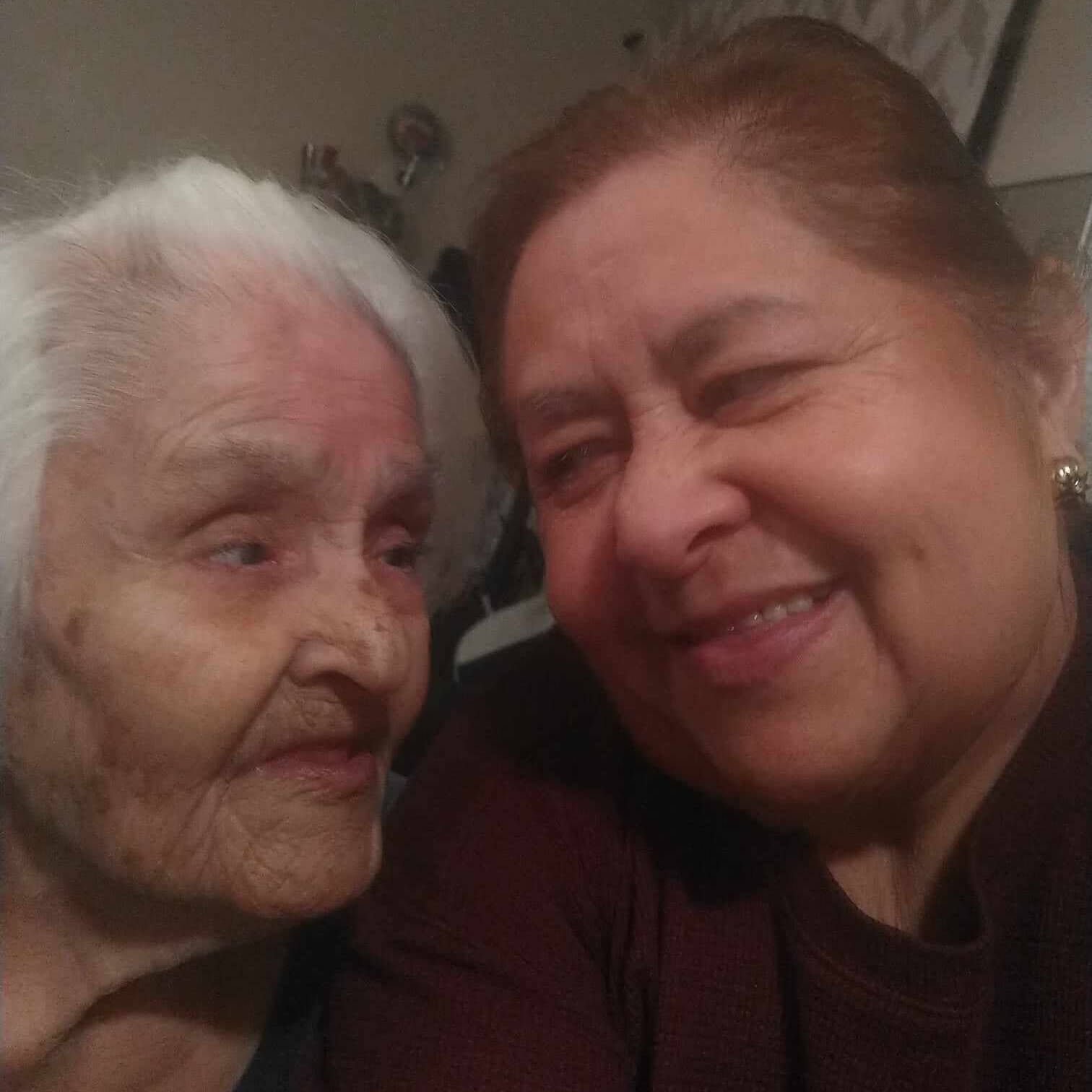Dawn, Steve and Kevan are all caring for someone who was diagnosed with dementia under the age of 65. The three caregivers share their unique perspectives on caregiving and why joining a support group... The post Younger-onset dementia caregivers...
Dawn, Steve and Kevan are all caring for someone who was diagnosed with dementia under the age of 65. The three caregivers share their unique perspectives on caregiving and why joining a support group specifically for younger-onset caregivers was so important.
Support groups
The Alzheimer’s Association® provides free caregiver support groups, conducted by trained facilitators. They are a safe place for caregivers (family and friends) of persons with dementia to talk through issues, share feelings and learn practical information on caregiving challenges.
The Association offers a number of dementia family caregiver support groups, including groups for those who are providing care for a person living with younger-onset Alzheimer’s or dementia. Alzheimer’s disease is considered to be younger-onset Alzheimer’s if it affects a person under 65.
According to the Alzheimer’s Association 2023 Alzheimer’s Disease Facts and Figures report people younger than 65 can also develop dementia. Although prevalence studies of younger-onset dementia in the United States are limited, researchers believe about 110 of every 100,000 people ages 30-64 years, or about 200,000 Americans in total, have younger-onset dementia.
Caring for someone under the age of 65 comes with unique challenges that may not be covered in a general dementia caregiver support group support group. The caregivers interviewed below share why they feel the younger-onset support group better met their needs and why they encourage others in similar situations to attend.
Dawn & Cecilio
Dawn has been caring for her husband Ceclilio who has been living with Alzheimer’s for six years. He’s currently 56 years old.
Cecilio: Diagnosed in his 50s
Cecilio was a vibrant, helpful man who spent a lifetime working in construction. He worked for the same company for 30 years and the owner saw him as a son. However, when he started forgetting things and missing offramps on the freeway, his wife, Dawn, suggested he see a doctor.
Being in his early 50s, Cecilio’s doctor assumed it was issues in their marriage and recommended marriage counseling. Luckily, they had a very good therapist who could see plainly that Cecilio was having issues with his memory and suggested they see a neurologist.
Needing support
When Cecilio was diagnosed with Alzheimer’s disease and Dawn was told she should reach out to the Association. Assuming she could figure this out on her own, she initially ignored the doctor’s recommendation until a month later. Dawn said, “A month in and all the craziness, [the Association] must have more experience than me.”
Dawn was referred to a general dementia caregiver support group, but it wasn’t a good fit. Most of the people in the group were dealing with parents and grandparents who were living with dementia, not spouses. Dawn did some looking around and found that there was a group for people living with younger-onset, like her husband. She started to attend that support group and found that she really connected with the members of this group.
Finding resources
“Finding resources for younger-onset is really hard,” said Dawn. “Having a resource, having a place to discuss what [is happening] is so rare. It’s a place to bounce things off of people who are familiar with the process. It’s different challenges than in other groups. Having a different mindset for not only the caregiver but also the [person living with the disease]. They’re still young, vibrant, still use to driving.
“You need support, outreach, and additional thoughts. If its brand new you may not know what you’re in for. [There are] shared resources that are helpful. [I would have] never known what legal information that was needed. I would have assumed a lot of it. A huge weight lifted [when I joined the support group and I] don’t have to worry about what’s to come.”
Self care
Dawn encourages new caregivers, to attend a support group and remember to prioritize taking care of themselves. Facts and Figures states thats eventy-four percent of dementia caregivers reported that they were “somewhat concerned” to “very concerned” about maintaining their own health since becoming a caregiver. Dementia caregivers have twice the odds of experiencing an overnight hospitalization than non-caregivers.
“With every support group I’ve been in, I didn’t realize that every group was saying ‘What’s your self-care?’” said Dawn. “I thought that was selfish initially until I heard it from so many. Maybe it’s this one group, [but then] no it’s this group and this group [saying the same thing].
“I realize that I needed it and I’m not being selfish I’m just rejuvenating to be a better caregiver and spouse. I don’t have the guilt. That was the one thing I picked up from every group because self-care is so different for everyone but needed.”
Steve and Tracy
Steve has been caring for his wife Tracy since her stroke in 2015. She has been living with dementia since 2017 and is currently 60 years old.
Tracy: Diagnosed in her 50s
In 2015 Tracy went to the hospital because she hadn’t had a bowel movement in five days. The constipation had caused a toxic amount of chemicals to build up in her body, and as a recovering alcoholic, Tracy’s liver couldn’t help her. The doctors put her in a medically induced coma where she had a stroke. Doctors weren’t sure she was going to wake up, but when she did, she couldn’t read, write, speak and had some temporary memory loss like amnesia.
With the help of her husband Steve and a physical therapist, Tracy was able to mostly recover and return to her normal life. Sadly, it was short lived. Because strokes can block blood vessels in the brain, changes in thinking skills can occur. Steve believes that this is what most likely happened with Tracy.
Finding support
A few years after being discharged from her hospitalization, Tracy began repeating herself and eventually started wandering and trying to escape her own home. Steve put ID bracelets on her in case she got lost. “My whole existence as an individual vanished,” said Steve. “I loved her so much. I was like an abused spouse just hiding it from people. I had to learn how to get medical insurance and I didn’t know what to do.”
Steve, who is also a recovering alcoholic, was aware of the 12-step program that Alcoholics Anonymous has. Steve thought to himself, if there was a program for alcoholics there must be something for dementia caregivers.
“I can’t be the only person in the history of time that’s gone through what I’m going through,” said Steve. “The word ‘caregiver’ wasn’t in my vocabulary; I was doing what I needed to do. I did some research, although [for Tracy it] was dementia, but I was always hearing Alzheimer’s and dementia interwoven. These are the same things; people are experiencing the same traumas and hassles whatever the name is on it.”
Opening up to strangers
Steve learned about the younger-onset support group which meets monthly online. However, he always managed to come up with some excuse not to go. Finally, after a couple of months he decided to attend and was surprised to learn how much he had in common with other people there.
“The first time I shared, I was afraid to tell them that my wife didn’t have regular Alzheimer’s. [I thought ‘they’re gonna kick me out,’” said Steve. “Once I got past that, it freed everything up. [I was able to] learn tricks on getting her to do what I want her to do. Like giving her a choice A or B when I’m good with either of those options. I’m not always the bad guy telling her what to do. There was freedom in being able to share that our stories might be different but were on the same boat.
“I could see how it would be embarrassing to talk to a stranger about those things. These strangers have been there done that. It’s someone saying I get it, I don’t have a solution but I get it. There is some solace that my brother or sister somewhere is going through this. It doesn’t make it easier, but I’m not the only one and we’ll get through the day.”
Taking notes
Steve knows that a lot can happen in the month between meetings which is why he encourages other caregivers to have a “Gotta bring that up” cheat sheet. “A lot happens when you’re a caregiver in a month, [it feels] like a year,” said Steve. “Whatever the topic is, or someone brings up inevitably speaks to my situation. It’s not always a solution but at the bare minimum it’s an ‘I get it and you’re not alone.’
“If you’ve just started on this journey [things are going to get harder]. You’re going to be going through some [bad times]. Situations that will have you baffled and embarrassed and angry and frustrated and confused and resentful and all of these things that you’ve never experienced before.
“I guarantee you the people in that group [have experienced it too] and you’ll get an understanding that it won’t be solved all it once. You’ll be given tools to clean up and help you in the now. It’ll be valuable even though you may not see it now.”
Kevan & and his mom
Kevan is a long-distance caregiver for his mother who was diagnosed with dementia at the age of 64.
Kevan’s mom: Diagnosed at 64
In early 2012 Kevan moved away from his family in Kentucky to start a new life in California. A couple of years later, at the end of 2013, he learned his mother, who was only 64 at the time, had been diagnosed with dementia.
Kevan’s mother had been working at a lab running machines for 30 years and one day she couldn’t remember how to operate them. She went to see a doctor and after receiving a dementia diagnosis decided it was best to retire right away. She tried to stay active by going to the gym, in the hopes of slowing down her pregression.
Participating in Walk
After his mother’s diagnosis, Kevin and his family got involved with the Alzheimer’s Association Walk to End Alzheimer’s® and began fundraising. At first Kevan only participated in Kentucky but then brought his support back to California, even joining the Walk Committee locally for a few years. Eventually he learned about the younger-onset support group and decided to give it a try.
“This disease can be different with everyone and the same,” said Kevan. “[There is] disappointment and frustration. To be with people both my age and older and younger dealing with it and saying, ‘Hey this is not unusual. This is normal and it’s ok to feel those emotions. It’s the disease and its ok to be mad at something like that.’ It was a big eye opener for me.”
Wearing armor
Despite the distance, Kevan was able to show up for his family by bringing home resources, tips and tricks that he learned during his support group. Because Kevan didn’t see his mother as frequently due to the distance, the changes in her behaviors were far more obvious when he returned home. One of the biggest things Kevan learned was how to protect himself.
“Acknowledge ahead of time that things will be hard,” said Kevan. “Nothing will be perfect. As a son I want to make it perfect. Know what to expect and go in with armor. That’s the best approach. I’ve passed this on to other people and it seems to help. These are the tools and assets you can gain from other people in the group.”
Making connections
For Kevan, the support group brought him more that just information it helped him feel more connected. He felt empowered by the facilitators and made lifelong friends with other caregivers. “I didn’t know anything about the disease in the beginning,” said Kevan. “I knew it was not going to end well. Then to hear people talk who have experienced it or gone through it. You are really going to build strong connections with these people and have that family of sorts you can go to.
“[You’ll make] friendships outside of the group if you need to talk to someone more than once a month. Everyone there wants to help each other. It’s not inappropriate, everyone knows what you’re going through. As many good friends as I have outside of the Association support groups, they just don’t understand it. They don’t know how to relate and say good things and be there for you.”
“The Support group leaders are just phenomenal. When you need someone who has seen what this disease can do. They just have an understanding and a calmness in a way to communicate with people. The resources and the support they provide in a way that makes sense and is not scary. At the end of the day give you some sort of peace.”
We offer three virtual younger-onset caregiver groups on Tuesdays and Wednesdays. If you’re interested in signing up for the younger-onset support group or any of the Alzheimer’s Association support groups, call the 24/7 Helpline at 800.272.3900.
The post Younger-onset dementia caregivers share the importance of support groups first appeared on Alzheimers and Dementia Blog - Alzheimers Association of Northern California and Northern Nevada.



